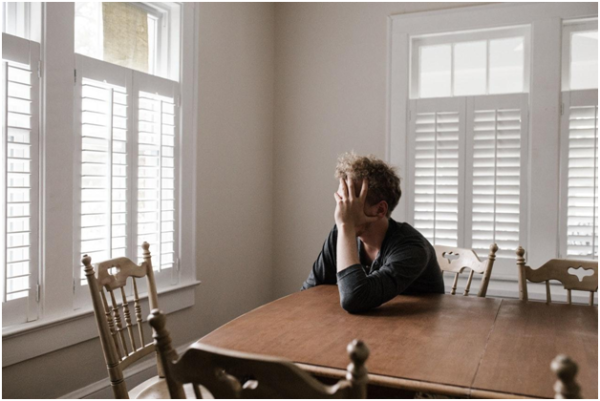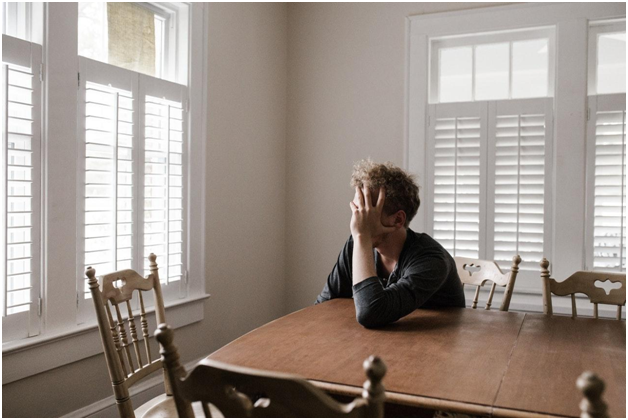
2020 has become a year of radical change, shifts in perspective, and the sobering reminder that all of us are mortal, prone to disease and ailments that can, and sometimes will end our lives. From wildfires engulfing en entire continent to political scandals, a biblical plague, and everything in between, the term “dumpster fire” doesn’t even begin to cover the year 2020.
Most of us take a few major events per year in stride. That’s just how it goes, right? Things happen, people die, and the world keeps turning. So, why are you feeling extra emotional this year? Could it be that there’s more to it? Perhaps these new changes are more traumatic than we might have thought. Why am I so emotional? Let’s look closer at some of the reasons you might be feeling more emotional than usual.
1. Can You Say…COVID?
COVID-19 came sweeping out of the east with a fury no one saw coming (except everyone did, just not the US). If you’re in the United States, you’re probably still feeling terrified of the virus, which has claimed more than 160,000 peoples’ lives and continues to spread, despite areas of the world being in recovery.
With five million confirmed cases and counting, the end of the COVID crisis is nowhere in sight for the United States, and experts are suggesting that we may experience a resurgence as winter approaches. How can one not feel emotional under these circumstances? We feel neglected by our leaders, uncertain of the future, and afraid to even visit a grocery store for fear of catching the virus.
The hierarchy of needs comes into play here. Maslow suggests that all people have a hierarchy of needs, and until the basic needs are met, you can’t be creative, happy, or fulfilled. These basic needs are physiological needs (food, air, water, etc.), safety needs (personal security, employment, resources, health), and then love and belonging, esteem, and self-actualization.
Notice how safety and things like food and air come before everything else. If your most basic needs aren’t met, it’s incredibly difficult to feel safe or satisfied; and lets’ be honest, none of us are feeling very safe during the COVID-19 pandemic.
2. Social Media
The unfortunate truth about our favorite way to connect with friends, family, and our favorite brands is that it may not be a healthy habit to engage in. Studies have shown that people who spend a lot of time on social media tend to suffer from lower self-esteem, a sense of sadness or even depression, and increased social withdrawal. That’s a bit alarming, no doubt, but there’s a good chance your social media usage has increased during quarantine.
Social media can be a stressful place. Not only are you seeing doctored versions of everyone else’s lives (that always seem to look “better”), but you’re also getting a ton of misinformation on things like COVID restrictions. How can anyone feel good getting bombarded with conflicting information, political opinions, and Jane’s constant posting about how amazing her life is?
Cutting down on social media might actually help improve your mental health and help you through this year without having a major breakdown. We all miss our friends and family, but there are plenty of other ways to stay connected until we can meet in-person once more.
3. Life Brought Into Perspective
Major traumatic events often have the effect of bringing life into sharp focus. When mortality comes knocking, and the threat of illness and potential death lingers in the air like a foul stench, we tend to look back on our lives and take measure of what we’ve done; and everything we haven’t. For some, this means facing mistakes or decisions that have potentially led to happiness or unfulfillment. For others, this means getting their act together and finally deciding to get that degree, ask that girl out, or just do better for themselves.
There’s no guarantee that we’ll have a future. Even tomorrow isn’t something we can be sure of, but if COVID has taught us anything, it’s that life is short. Too short to waste on petty quarrels, pointless scrolling online, and other trifles. If reflecting on your life has caused you to feel sad, unfulfilled, or generally unhappy with where you’re at, now’s the time to make some important choices to ensure the rest of your life is exactly what you want.
4. The News
Fear-based media; what is it? To properly explain it, we’d need an entire article. Luckily, this article explains the concept in-depth. The basic premise is that fear sells papers, column inches, and keeps people coming back for more. If you’ve ever watched the news, you’ll notice it’s riddled with fear-based headlines, commentary, and a general focus on the negative. Why? Because it preys on the anxieties we all have.
This year has been a treasure trove of fear for the mainstream media. If you’ve been watching the news consistently, you’re probably starting to feel the effects of this fear-mongering, to the detriment of your mental health. Yes, you should still keep yourself informed, but where you get your information is just as important as the information itself.
